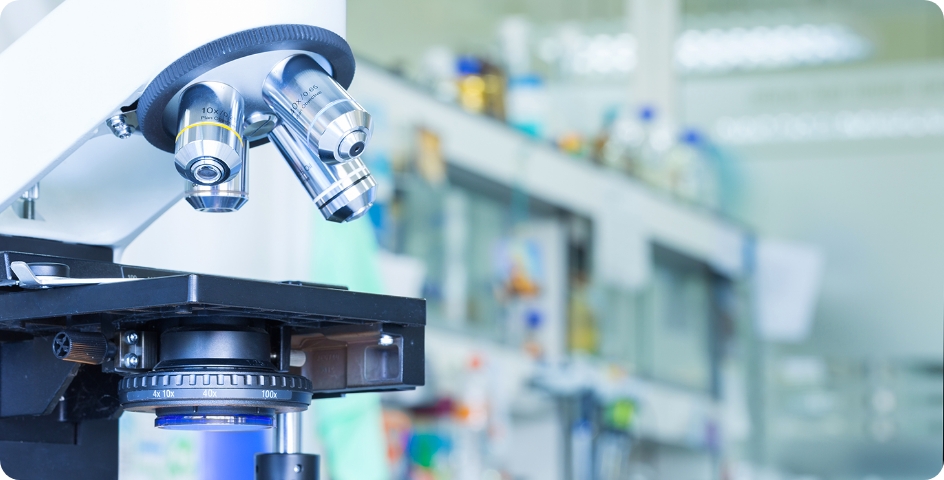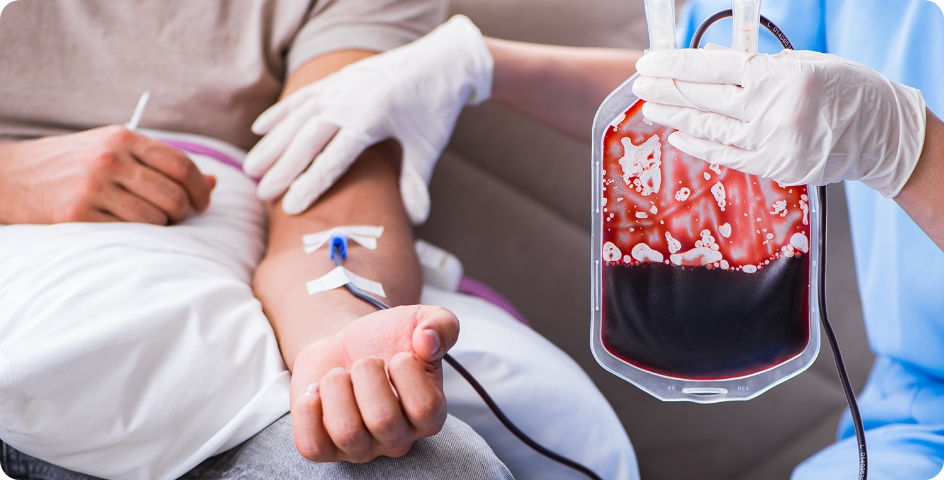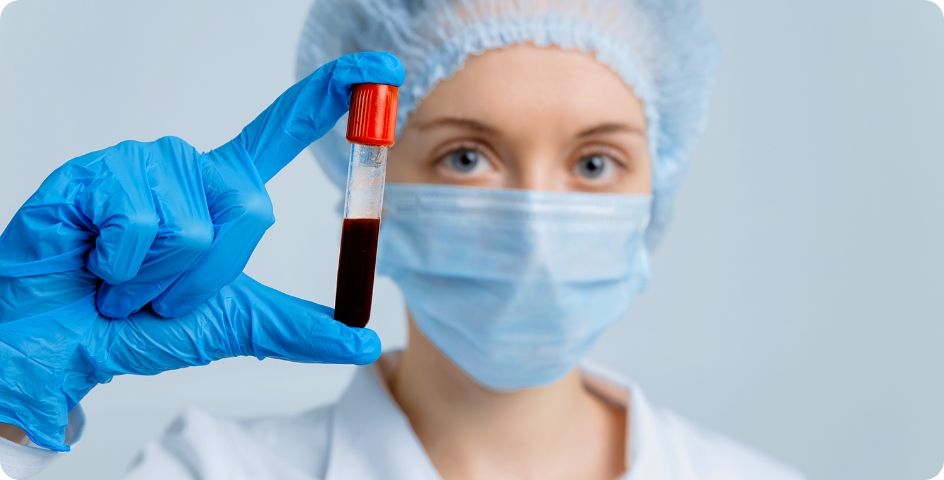Leukemia Treatment in Turkey
Healthy Türkiye helps you find the best leukemia treatment in Turkey at affordable prices and adopts a 360-degree service approach in all areas of health through affiliated hospitals.
- Medical Treatment
- Cancer Treatment in Turkey
- Image Guided Radiotherapy in Turkey
- Image-Guided Radiosurgery in Turkey
- Intensity-Modulated Radiation Therapy in Turkey
- Kidney Cancer Treatment in Turkey
- Leukemia Treatment in Turkey
- Liver Cancer Treatment in Turkey
- Lung Cancer Treatment in Turkey
- Lymphoma Treatment in Turkey
- Bladder Cancer Treatment in Turkey
- Bone Marrow Transplant in Turkey
- Brachytherapy in Turkey
- Brain Cancer Treatment in Turkey
- Breast Cancer Treatment in Turkey
- Cervical Cancer Treatment in Turkey
- Chemotherapy in Turkey
- Colon Cancer Treatment in Turkey
- Hormonal Therapy in Turkey
- Bone Cancer Treatment in Turkey
- Endometrial Cancer Treatment in Turkey
- Gastric Cancer Treatment in Turkey
- Gene Therapy in Turkey
- Melanoma Treatment in Turkey
- Mesothelioma Treatment in Turkey
- Metastatic Cancer Treatment in Turkey
- Mouth Cancer Treatment in Turkey
- Neuroblastoma Treatment in Turkey
- Oral Cancer Treatment in Turkey
- Ovarian Cancer Treatment in Turkey
- Pancreatic Cancer Treatment in Turkey
- Photodynamic Therapy in Turkey
- Proton Therapy in Turkey
- Sarcoma Treatment in Turkey
- Skin Cancer Treatment in Turkey
- Stereotactic Body Radiation Therapy in Turkey
- Targeted Therapy in Turkey
- Testicular Cancer Treatment in Turkey
- Throat Cancer Treatment in Turkey
- Thyroid Cancer Treatment in Turkey
- Uterine Cancer Treatment in Turkey
- Volumetric-Modulated Arc Therapy in Turkey
- Prostate Cancer Treatment in Turkey
- Robotic Radical Prostatectomy Surgery in Turkey
- Hemato-Oncology Treatment in Turkey
- Skin Cancer Malignant Melanoma Treatment in Turkey
- Colorectal Cancer Treatment in Turkey
- Radiotherapy in Turkey
- Immunotherapy in Turkey
- TIL Therapy in Turkey
- TCR-T Therapy in Turkey
- CAR NK Cell Therapy in Turkey
- Gene Editing Therapy in Turkey
- Dendritic Cell Vaccines in Turkey
- Oncolytic Virus Therapy in Turkey
- NK-92 Cell Therapy in Turkey
- Cytokine Therapy in Turkey
- Bispecific T-cell Engager in Turkey
- Macrophage-Based Therapy in Turkey
- IPSC-Derived Immunotherapies in Turkey
- Glossectomy in Turkey
- Regulatory T Cell Therapy in Turkey
- Gamma Delta T Cells Therapy in Turkey
- Homepage
- Medical Treatment
- Leukemia Treatment in Turkey

About Leukemia Treatment in Turkey
Leukemia treatment in Turkey is a broad term for cancers of the blood cells. The type of leukemia depends on the type of blood cell that turns into cancer and whether it grows quickly or slowly. Leukemia occurs more often in adults older than 55, but it is also the most common cancer in children younger than 15. Explore this page to learn more about the types of leukemia plus treatment, statistics, research, and clinical trials.
Healthy Türkiye ensures you have the best cancer treatment in Turkey. Leukemia is a cancer of the body’s blood-forming tissues, involving the bone marrow and the lymphatic system. Many types of leukemia exist. Some forms of leukemia are more widespread in children. Other forms of leukemia occur mostly in adults.
Leukemia usually includes white blood cells. Your white blood cells are potent infection fighters, they normally improve and divide in an orderly way as your body needs them. But in people with leukemia, the bone marrow creates an excessive number of abnormal white blood cells, which don’t function warrantably.
Treatment for leukemia in Turkeycan be applied frictionlessly depending on the type of leukemia and other factors. However, there are strategies and resources that can help make your treatment successful.
Leukemia is a malignant disorder that affects the blood-forming tissues, including the lymphatic system and bone marrow. In other terms, it is a type of blood cell cancer. There are various forms of leukemia, some of which affect children and others of which affect adults. Leukemia is most commonly found in white blood cells, which fight infections. These cells normally grow and divide in an ordered manner, as the body requires. However, in leukemia, the bone marrow creates abnormal white blood cells that do not function normally. These cancerous cells gradually crowd out the good bone marrow cells.

Leukemia Treatment Procedure in Turkey
Leukemia treatment in Turkey is for a blood disease commonly referred to as blood cancer. Leukemia begins in the bone marrow, which is the location where blood cells grow and mature. When some white blood cells become malignant (cancerous), the disease is known as leukemia. There are two types of leukemia: acute and chronic. Acute leukemia spreads quickly and requires rapid medical attention when detected. In contrast to acute leukemia, chronic leukemia spreads more slowly. Radiation therapy, surgery, and bone marrow transplant have all shown promising outcomes in healing this sickness.
How Does Leukemia Develop? Leukemia starts in bone marrow, the soft spongy tissue in the inner cavity of your bones, where your body’s blood cells are made. Blood cells go through multiple phases before reaching their fully mature forms. Mature, normal blood cells include:
Red blood cells: Cells that carry oxygen and other biotic materials to all tissues and organs in your body.
White blood cells (WBC): Cells that combat infection.
Platelets: Cells that assist your blood clot.
These blood cells begin as hematopoietic (hemo = blood, poiesis = make) stem cells. The stem cells improve into either myeloid cells or lymphoid cells. If blood cells were to keep developing normally, the mature forms of these cells are as below:
Myeloid cells improve into red blood cells, platelets, and certain types of white blood cells (basophils, eosinophils, and neutrophils).
Lymphoid cells develop into certain white blood cells (lymphocytes and natural killer cells).
The aim of treating leukemia patients is to eliminate cancerous cells while allowing new healthy cells to develop. Treatment will be determined by your overall health, the stage of your leukemia, and your age.
How does leukemia affect the bones? A person may have bone pain as their bone marrow becomes overcrowded by the growth of cancer cells. People most often feel this pain in the long bones of the legs and arms, or in the ribs and sternum. Sometimes, a person may experience pain because of a mass of cancer cells forming near the nerves of the spinal cord. Rarely, leukemia may weaken bones to the dimension of causing bone fractures. This is more common in weight-bearing bones, such as the pelvis, spine, and thighbone.
How does leukemia affect the immune system? WBCs have an essential trusted source role in the function of the immune system. They are responsible for fighting infections and diseases in humans. Leukemia typically affects WBCs, causing the bone marrow to create abnormal WBCs that cannot fight infections as they should. This impairs the immune system, putting the body at increased risk of developing severe infections and diseases. At Healthy Türkiye, we are with you for early diagnosis and the fastest treatment with surgeons who are experts in their fields in blood cancer and all other diseases.
How does leukemia affect the heart and muscles? In leukemia, it is possible for cancer cells to slip into blood vessels, causing issues such as ischemic cardiac illness, which is also called coronary artery disease (CAD). This is where the heart does not accept an adequate supply of blood and oxygen. In Turkey, certain medications applied to treat leukemia may increase the risk of heart failure. Drugs known as anthracyclines are the standard therapy for acute types of leukemia. These types progress swiftly, so they need more aggressive treatment. However, using high doses of anthracyclines over a short period increases their toxicity. Muscle weakness is one of the other conditions that can affect people with leukemia.
How does leukemia affect the digestive system? Some versions of leukemia can affect the digestive system, despite this is rare. For example, chronic lymphocytic leukemia affects the digestive system in about 5.7–14% of cases. Doctors refer to this as Richter’s syndrome. Leukemic ulcers or injuries can occur in the stomach, ileum, and proximal colon. These conditions can become extremely dangerous or life-threatening due to trusted Source infection, bleeding, or inflammation of the intestinal tissues.

We Care About Your Health
Healthy Türkiye provides the best for your health and comfort. You will feel privileged with us.
7/24 Quality Personal Assistance Throughout Your Journey
Customizable for You All-Inclusive Packages
Get the Right Advice for your Health
Types of Leukemia
There are four main types of leukemia, and several subtypes can be treated in Turkey. Healthcare specialists classify leukemia based on how fast the disease worsens and whether leukemia cells appear from myeloid or lymphoid cells. Some types of leukemia are more prevalent in children, while others are more common in adults. Leukemia is frequently related to white blood cells. These blood cells help the body fight infections. Cancer arises when cells in the bone marrow expand and divide abnormally. Leukemia patients have an abnormally large number of white blood cells that do not behave properly.
Classifications of leukemia: For the treatment of leukemia in Turkey, the first step is to look at how fast the leukemia progresses and the type of blood cells it contains. Laboratory tests and evaluations help the doctor determine the best type of treatment for the patient. In some cases of persistent leukemia where there are no symptoms, watchful waiting may be an option. Close monitoring and controls are often required to monitor the condition.
By speed of disease progression: Leukemia is a cancer of the white blood cells. Acute leukemia means it progresses quickly and aggressively and generally requires immediate treatment. Acute leukemia is categorized according to the type of white blood cells affected. Chronic leukemia cells behave as both immature and mature blood cells. Some cells develop to the point where they function as the cells they were meant to be, but not to the extent their normal coequals do. The disease typically is getting worse slowly compared to acute leukemia. If you have chronic leukemia, you may not have noticeable signs for years. Chronic leukemia is more common in adult people than in children.
Chronic myeloid leukemia: (CML), is named as chronic myelogenous leukemia. It’s a type of cancer that begins in certain blood-forming cells of the bone marrow. In CML, a genetic difference takes place in an early (immature) version of myeloid cells. The cells make red blood cells, platelets, and most types of white blood cells (except lymphocytes). This change forms an abnormal gene, which turns the cell into a CML cell. The leukemia cells improve and divide, building up in the bone marrow and spilling over into the blood.
Chronic lymphocytic leukemia: Chronic lymphocytic leukemia (also called CLL) is a cancer of the blood and bone marrow that gets worse slowly. CLL is one of the most common types of leukemia in adults. It often happens during or after middle age. It rarely occurs in children. In CLL, too many blood stem cells become abnormal lymphocytes. The abnormal lymphocytes may also be known as leukemia cells. These leukemia cells are not able to fight infections very well. Also, as the number of leukemia cells increases in the blood and bone marrow, there is less room for healthy white blood cells, red blood cells, and platelets. This may cause infection, anemia, and easy bleeding. If you have more than half of these signs and are worried about leukemia, you should quickly contact Healthy Türkiye’s specialist doctors about your concerns about lung cancer treatment in Turkey.
Many factors influence your leukemia treatment. Your leukemia treatment options are determined by your doctor based on your age and overall health, the type of leukemia you have, and whether it has spread to other parts of your body, including your central nervous system. Treatment for leukemia in Turkeyis an effective and affordable treatment for people who suffer from this type of blood cancer. It is a lucrative option for patients from countries such as the USA, the UK, and many more European countries. Every year, thousands of people from these countries travel to Turkey for medical treatment.
Leukemia Symptoms
When concerning common risk factors associated with leukemia and other types of cancers, it is important to understand that a risk factor is only something that indicates the potential for an increased risk of developing the condition. There is no way to accurately predict who will or won’t develop leukemia in their lifetime. However, it can assist to have a basic understanding of the most common contributing factors that can make a person more susceptible to the illness so that people at risk can be proactive about living a healthy lifestyle and vigilant about signs and symptoms. While risk factors vary depending on the specific type of leukemia, some of the most common are:
Age: Generally speaking, people over the age of 65 are more at risk for leukemia.
Demographics: While anyone can conceivably have leukemia, white males are statistically most susceptible.
Radiation exposure: Exposure to radiation from an atomic bomb enhances the likelihood that leukemia cells will form.
Previous cancer treatment: Patients who have to get chemotherapy or radiation therapy are more likely to develop leukemia.
Genetic disorders: Blood disorders and Down syndrome enhances the chances for leukemia cell formation.
Family history of leukemia: Genetic factors are a strong risk factor for leukemia.
Other environmental factors: There is some evidence to suggest that tobacco smoke, pesticides, and industrial solvents could potentially lead to leukemia.
Leukemia symptoms vary, depending on the type of leukemia. Common leukemia signs and symptoms are: If you have any persistent signs or symptoms that concern you, please contact Healthy Türkiye to make an appointment with your doctor for leukemia treatment in Turkey. Leukemia symptoms are sometimes ambiguous and nonspecific. Early leukemia symptoms may be overlooked since they are similar to those of the flu and other common illnesses. Leukemia is sometimes detected via blood tests for another disease.
Tests and Diagnosis for Leukemia Treatment in Turkey
Healthy Türkiye ensures that you can reach all specialists in Turkey for help you in diagnosis stage. Doctors may find chronic leukemia in a routine blood test, before symptoms start. If this occurs, or if you have signs or symptoms that suggest leukemia, you may have the following diagnostic exams:
Physical Exam: Your specialist will look for physical symptoms of leukemia, such as pale skin from anemia, swelling of your lymph nodes, and enlargement of your liver and spleen.
Blood Tests: By looking at a sample of your blood, your specialist can determine if you have abnormal levels of red or white blood cells or platelets, which may cause leukemia. A blood test may show the presence of leukemia cells, though not all types of leukemia cause the leukemia cells to circulate in the blood. Sometimes the leukemia cells can stay in the bone marrow.
Bone Marrow Test: Your specialist may recommend a method to remove a sample of bone marrow from your hipbone. The bone marrow is dismantled using a long, thin needle. The sample is sent to a laboratory to look for leukemia cells. Specialized tests of your leukemia cells may reveal exact characteristics that are used to decide your treatment options. Healthy Türkiye’s doctors recommend annual leukemia screening for children, adults, and the elderly at risk of leukemia. In Turkey, chest X-ray is used for diagnosis.

Leukemia Treatment Types in Turkey
Treatment for leukemia depends on many factors. Your specialist decides your leukemia treatment options based on your age and overall health, the stage of leukemia you have, and whether it has spread to other parts of your body, including the central nervous system. Healthy Türkiye ensures to decide what leukemia treatment type in Turkeyis the best for you with recommendations by Healthy Türkiye’s specialized doctors, but the final decision will be yours. Common treatments used to fight leukemia in Turkey include:
Chemotherapy: Chemotherapy is the essential form of treatment for leukemia. This drug treatment uses chemicals to destroy leukemia cells. Depending on the type of leukemia you have, you may receive a single drug or a combination of them. These drugs may come in a pill form, or they may be injected into a vein.
Targeted therapy: Targeted drug treatments are focus on specific abnormalities occurred cancer cells. By blocking these abnormalities, targeted drug treatments can cause cancer cells to die. Leukemia cells will be tested to see if targeted therapy may be beneficial for patients.
Radiation therapy: Radiation therapy uses X-rays or other high-energy beams to wreck leukemia cells and stop their growth. During radiation therapy, you lie on a table while a large device moves around you, directing the radiation to precise points on your body.
Bone marrow transplant: A bone marrow transplant, also known as stem cell transplant, assists reestablish healthy stem cells by changing unhealthy bone marrow with leukemia-free stem cells that will regenerate healthy bone marrow.
Prior to a bone marrow transplant: You have very high doses of chemotherapy or radiation therapy to kill your leukemia-producing bone marrow. Then you receive an infusion of blood-forming stem cells that assist rebuild your bone marrow. You may receive stem cells from a donor or you may be able to use your stem cells.
Immunotherapy: Immunotherapy uses your immune system to combat cancer. Your body’s disease-fighting immune system may not attack your cancer. Because the cancer cells produce proteins that help them hide from the immune system cells. Immunotherapy works by interfering with that process.
Clinical trials: Clinical trials are experiments to test new cancer treatments and new ways of using existing treatments. While clinical trials give you or your child a chance to try the latest cancer treatment, treatment benefits and risks may be unclear.
After completing a cycle of leukemia therapy, the patient is followed up to see how the leukemia therapy is working. After just one or two rounds of treatment, some patients notice a significant reduction in cancer cells in their bone marrow or blood cells. Patients are encouraged to undergo various diagnostic tests at regular intervals to reduce the risk of cancer recurrence and to monitor treatment success.

2026 Cost of Leukemia Treatment in Turkey
All types of medical attention, like leukemia treatment, are very affordable in Turkey. Many factors are also included in determining the cost of leukemia treatment in Turkey. Your process with Healthy Türkiye will last from the time you decide to have leukemia treatment in Turkey until the time you are fully recovered, even if you are back home. The exact leukemia treatment procedure cost in Turkey depends on the type of operation involved.
The cost of leukemia treatment in Turkey does not demonstrate many variations in 2026. Compared to costs in developed countries like the United States or the UK, leukemia treatment costs in Turkey are relatively low. So, it’s no wonder patients from across the world visit Turkey for leukemia treatment procedures. However, price is not the only factor affecting choices. We suggest looking for hospitals that are safe and have leukemia treatment reviews on Google. When people decide to seek medical help for leukemia treatment, they will not only have had low-cost procedures in Turkey, but also the safest and best treatment.
At clinics or hospitals contracted with Healthy Türkiye, patients will receive the best leukemia treatment from specialist doctors in Turkey at affordable rates. Healthy Türkiye teams provide medical attention, leukemia treatment procedures, and high-quality treatment to patients at a minimum cost. When you contact Healthy Türkiye assistants, you can get free information about the cost of leukemia treatment in Turkey and what this cost covers.
Why Is Leukemia Treatment Cheaper in Turkey?
One of the main considerations before traveling abroad for leukemia treatment is the cost-effectiveness of the whole process. Many patients think that when they add flight tickets and hotel expenses to their leukemia treatment costs, it will become very expensive to travel, which is not true. Contrary to popular belief, round-trip flight tickets to Turkey for leukemia treatment can be booked very affordably. In this case, assuming you are staying in Turkey for your leukemia treatment, your total travel expense of flight tickets and accommodation will only cost less than any other developed country, which is nothing compared to the amount that you are saving.
The question “Why is leukemia treatment cheaper in Turkey?” is so common between patients or people simply curious about getting their medical treatment in Turkey. When it comes to leukemia treatment prices in Turkey, there are 3 factors allowing cheaper prices:
The currency exchange is favorable for whoever looking for leukemia treatment has a euro, dollar, or pound;
The lower cost of living and cheaper overall medical expenses such as leukemia treatment;
For leukemia treatment, incentives are given by the Turkish Government to medical clinics working with international clients;
All these factors allow for cheaper leukemia treatment prices, but let’s be clear, these prices are cheaper for people with strong currencies (as we said, euro, dollar, Canadian dollar, pound, etc).
Every year, thousands of patients from all over the world come to Turkey to get leukemia treatment. The success of the healthcare system has increased in recent years, especially for leukemia treatment. It’s easy to find well-educated and English-speaking medical professionals in Turkey for all kinds of medical attention, such as leukemia treatment.

Why Choose Turkey for Leukemia Treatment?
Turkey is a common choice among international patients seeking advanced leukemia treatment. Turkey’s health procedures are safe and effective, with a high success rate like leukemia treatment. The increasing demand for high-quality leukemia treatment at affordable prices has made Turkey a popular medical travel destination. In Turkey, leukemia treatment is performed by highly experienced and trained doctors with the most advanced technology in the world. leukemia treatment is done in Istanbul, Ankara, Antalya, and other major cities. The reasons for choosing leukemia treatment in Turkey are as follows:
High-quality hospitals: Joint Commission International (JCI) accredited hospitals have dedicated leukemia treatment units that are specially designed for patients. International and national strict protocols provide effective and successful leukemia treatment for patients in Turkey.
Qualified experts: The expert teams include nurses and specialist doctors, together to carry out leukemia treatment according to the patient’s needs. All the included doctors are highly experienced in performing leukemia treatment.
Affordable price: The cost of leukemia treatment in Turkey is affordable compared to Europe, the USA, the UK, Singapore, Australia, etc.
The high success rate: Highly experienced specialists, the best available technology, and stringently followed safety guidelines for post-operative care of the patient, resulting in a high success rate for leukemia treatment in Turkey.
Is Leukemia Treatment Safe in Turkey?
Did you know Turkey is one of the most visited destinations for leukemia treatment in the world? It is ranked as one of the most popular tourist destinations for leukemia treatment. Over the years, it has also come to be a very popular medical tourism destination, with many tourists coming in for leukemia treatment. There are so many reasons why Turkey stands out as a leading destination for leukemia treatment. Because Turkey is both safe and easy to travel to, with a regional airport hub and flight connections to pretty much everywhere, it is preferred for leukemia treatment.
The best hospitals in Turkey have experienced medical staff and specialists who have performed thousands of medical services such as leukemia treatment. All procedures and coordination related to leukemia treatment are controlled by the Ministry of Health in accordance with the law. Over many years, the greatest progress in medicine has been observed in the field of leukemia treatment. Turkey is known among foreign patients for its great opportunities in the area of leukemia treatment.
To emphasize, besides the price itself, the key factor in selecting a destination for leukemia treatment is certainly the standard of medical services, the hospital staff’s high level of expertise, hospitality, and the safety of the country.
All-Inclusive Packages for Leukemia Treatment in Turkey
Healthy Türkiye offers all-inclusive packages for leukemia treatment in Turkey at much lower prices. Extremely professional and experienced doctors and technicians carry out the high-quality leukemia treatment. The cost of leukemia treatment in European countries can be quite expensive, especially in the UK. Healthy Türkiye provides cheap all-inclusive packages for a long and short stay of leukemia treatment in Turkey. Because of many factors, we can provide you with many opportunities for your leukemia treatment in Turkey.
The price of leukemia treatment differs from other countries due to medical fees, staff labor prices, exchange rates, and market competition. You can save much more in leukemia treatment compared to other countries in Turkey. When you purchase a leukemia treatment all-inclusive package with Healthy Türkiye, our healthcare team will present a list of hotels for you to choose from. In leukemia treatment travel, the price of your stay will be included in the all-inclusive package cost.
In Turkey, when you purchase leukemia treatment all-inclusive packages through Healthy Türkiye, you will always receive VIP transfers. These are provided by Healthy Türkiye, which is contracted with highly qualified hospitals for leukemia treatment in Turkey. Healthy Türkiye teams will organize everything about leukemia treatment for you and have you picked up from the airport and safely brought to your accommodation. Once settled in the hotel, you will be transferred to and from the clinic or hospital for leukemia treatment. After your leukemia treatment has been successfully completed, the transfer team will return you to the airport in time for your flight home. In Turkey, all packages of leukemia treatment can be arranged upon request, which relaxes the minds of our patients.
The Best Hospitals in Turkey for Leukemia Treatment
The best hospitals in Turkey for leukemia treatment are Healthy Türkiye, Memorial Hospital, Acıbadem International Hospital, and Medicalpark Hospital. These hospitals attract patients from all over the world seeking leukemia treatment due to their affordable prices and high success rates.
Best Doctors and Surgeons in Turkey for Leukemia Treatment
The best doctors and surgeons in Turkey for leukemia treatment are highly skilled professionals who offer specialized care and advanced procedures. With their expertise and state-of-the-art techniques, these specialists ensure that patients receive high-quality leukemia treatment and achieve optimal health results.

Frequently Asked Questions
Leukemia can block white blood cells from fighting infections and cause them to multiply uncontrollably. This development can cause overcrowding of healthy blood cells, causing severe problems throughout the body. Leukemia can be acute or chronic.
Generally speaking, people over the age of 65 are more at risk for leukemia. While anyone can conceivably develop leukemia, white males are statistically most susceptible. Radiation exposure.
Blood cancer starts in the soft, inner part of the bones (bone marrow), but mostly moves quickly into the blood. It can then spread to other parts of the body, such as the lymph nodes, spleen, liver, central nervous system, and other parts of the body.
Leukemia does not usually run in families, so in most situations, it is not hereditary. And while some people inherit genetic features that increase their risk, this does not mean they will develop the condition.
Some symptoms, like night sweats, fever, fatigue, and achiness, resemble flu-like symptoms. Unlike symptoms of the flu, which generally subside as you get better, leukemia symptoms usually last longer than two weeks, and may include sudden weight loss, bone, and joint pain, and easy bleeding or bruising.
Leukemia or myelodysplastic syndromes (MDS) can cause bone or joint pain, generally because your bone marrow has become overgrown with cancer cells. These cells may form a mass near the spinal cord's nerves or in the joints.
When you have leukemia, your bone marrow gets larger numbers of abnormal cells. This issue most often happens with white blood cells. These abnormal cells are created in your bone marrow and blood. They crowd out healthy blood cells and make it hard for your cells and blood to do their work.
Clinical and epidemiological studies have shown that stress-related bio-behavioral factors are associated with the accelerated progression of many types of cancer, including solid epithelial tumors and hematopoietic tumors such as leukemia
Your specialist will conduct a complete blood count (CBC) to decide if you have leukemia. This test may show if you have leukemic cells. Abnormal levels of white blood cells and abnormally low red blood cell or platelet counts can also refer to leukemia.
While you may be able to see if you have genetic markers for future cancer development, there's currently no home test available. Possible tests available for home use can give you an idea of your overall health and risk factors, but they can't diagnose leukemia.
